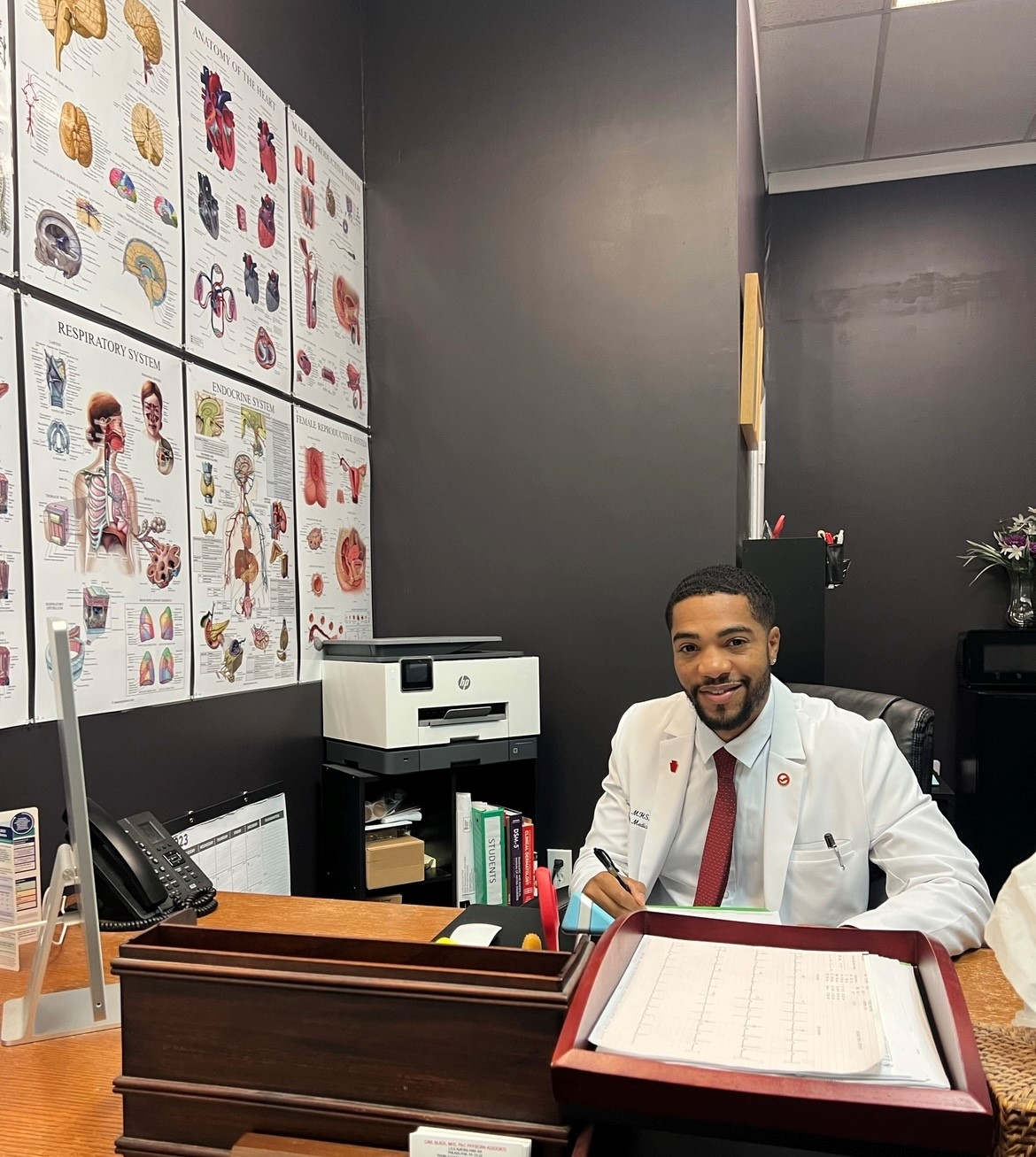Spotlight On: Carl Black, DMSc, PA-C '21
October 31, 2023
Carl Black, DMSc, PA-C '21, discusses why preceptors are vital to the health care field.
 Why did you become a preceptor?
Why did you become a preceptor?
I became a preceptor because of the profound influence my mother, a CNA, had on my passion for medicine. Witnessing her dedication to helping others inspired me to delve deeper into the field, especially when she fell ill with a brain aneurysm. Her illness led me to study her condition and kindled my interest in medicine. I realized the power of knowledge and care in transforming lives, and I wanted to pay it forward.
Why is it especially important to become a preceptor now?
Becoming a preceptor was a natural choice for me, inspired by the exceptional mentors I had, including PAs and physicians in the military who guided me during my time as a medic. Their wisdom and support paved the way for my journey. Now, in the face of the challenges posed by the recent pandemic, I recognize the vital role preceptors play in training health care workers to handle the unique demands of pandemic response. The health care system is under immense pressure, requiring experienced professionals to guide the influx of medical staff and nurture the next generation of health care providers. This mentorship is essential in building a resilient health care workforce, improving patient outcomes and preparing us for future crises. I understand the value of mentorship profoundly, knowing that none of us can navigate this complex field alone–we all need help, just as I did.
How did your preceptor change your life?
Teaching others and sharing my knowledge became my way of giving back. As a preceptor in family medicine, I found immense satisfaction in guiding aspiring medical professionals. The experience was transformative, teaching me not only the importance of medical knowledge but also the significance of empathy, understanding and breaking down barriers for patients.
The COVID-19 pandemic reinforced the critical role of family medicine. It highlighted the importance of preventive medicine, screenings and managing chronic conditions. It also underscored the significance of addressing the social and psychiatric aspects of medicine, emphasizing the need to meet patients where they are. This crisis made me appreciate the resilience of communities and the crucial role of health care providers in supporting them.
 How did becoming a preceptor change your life? / why should someone become a preceptor?
How did becoming a preceptor change your life? / why should someone become a preceptor?
Becoming a preceptor changed my life in profound ways. It deepened my understanding of the interconnectedness of health care and reinforced my belief in the power of education and mentorship. Running a family medicine practice allowed me to directly apply the knowledge and skills I had acquired, making a tangible impact on people's lives.
In essence, becoming a preceptor is a transformative experience. It not only enhances your own understanding of medicine but also allows you to shape the future of health care by guiding and inspiring the next generation of medical professionals. Now, more than ever, it is crucial to become a preceptor. The world needs compassionate, knowledgeable and empathetic health care providers who can navigate the complexities of modern medicine while providing holistic care to patients. By becoming a preceptor, you contribute significantly to this noble cause, fostering a legacy of healing, understanding and support in the medical community.